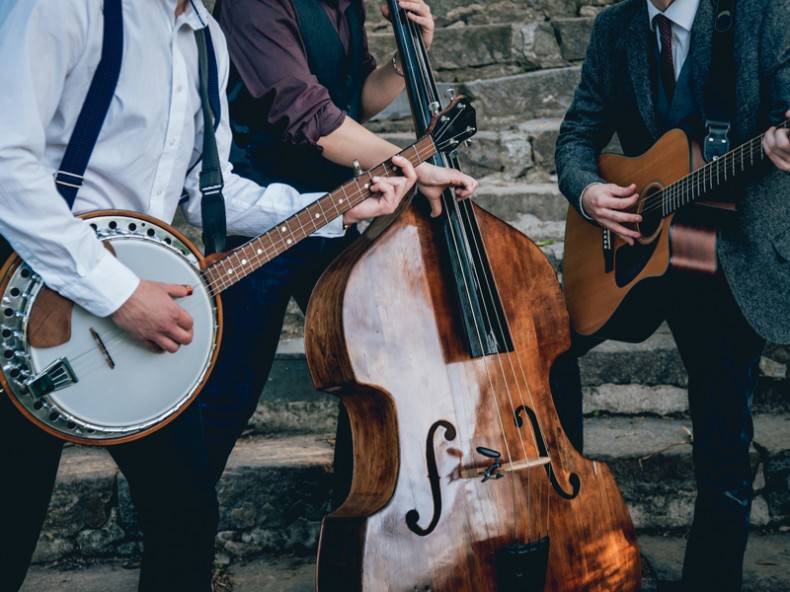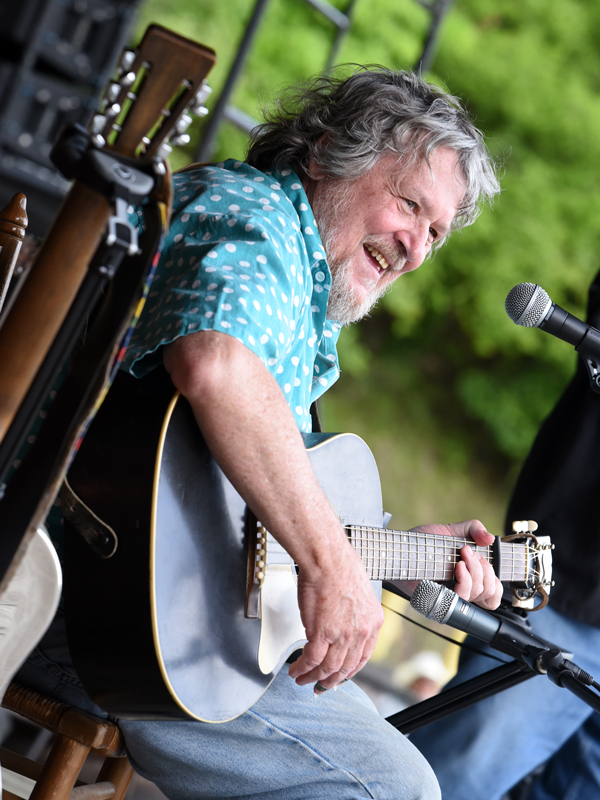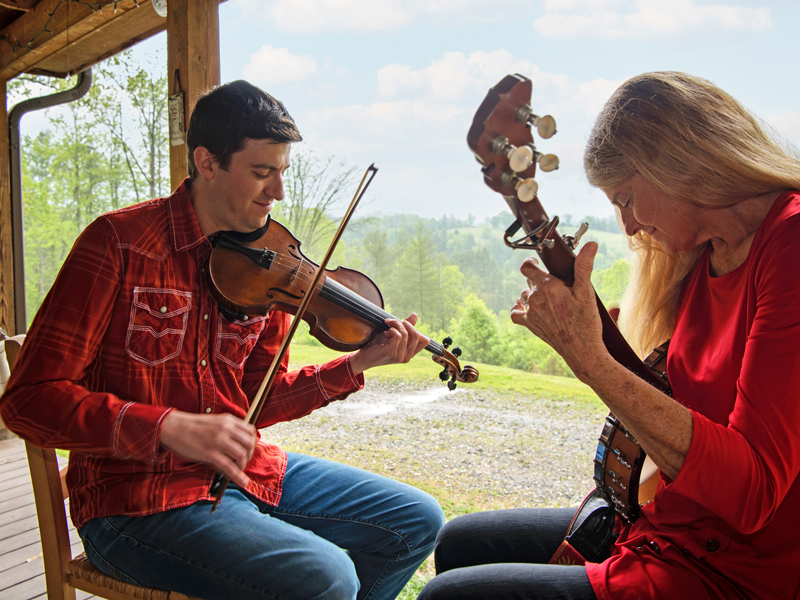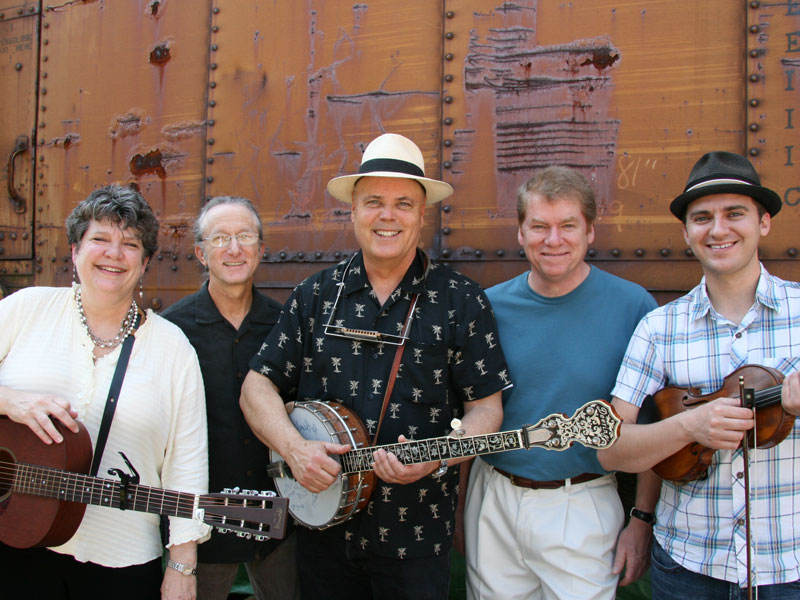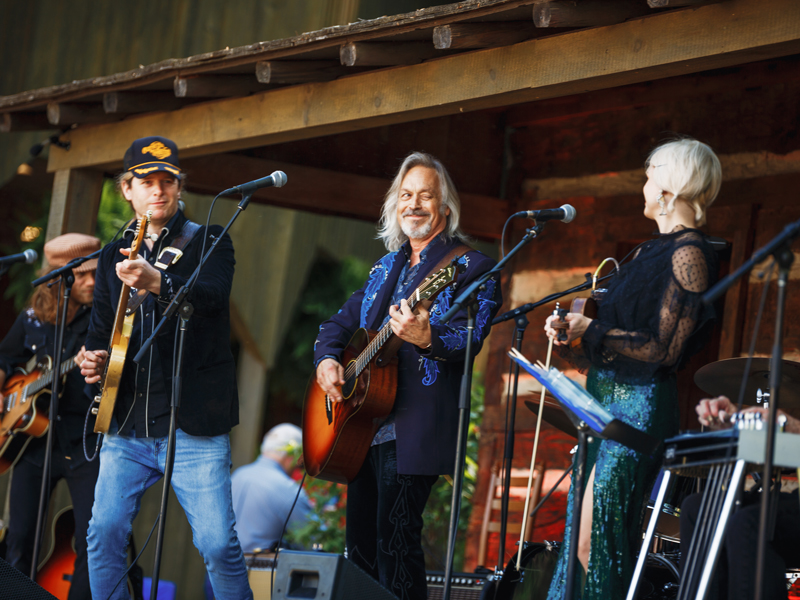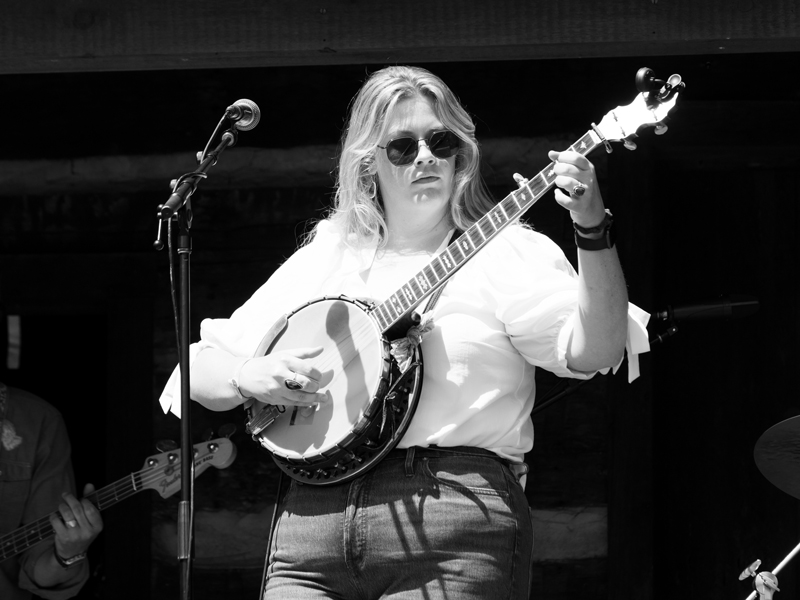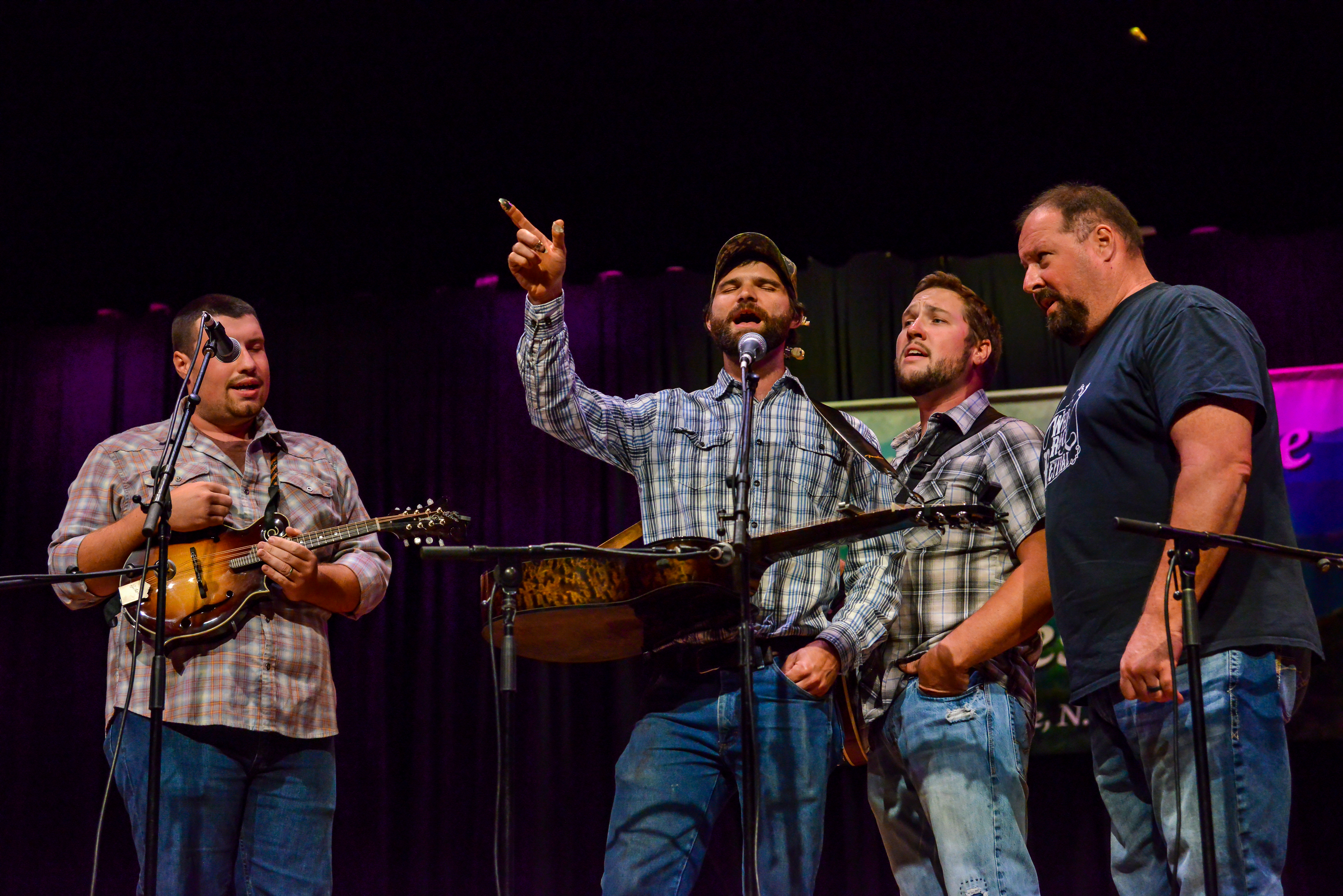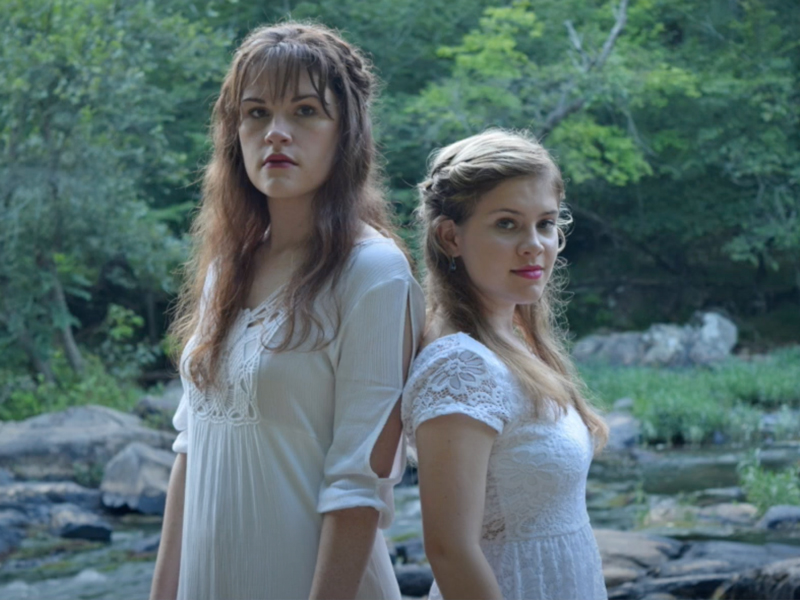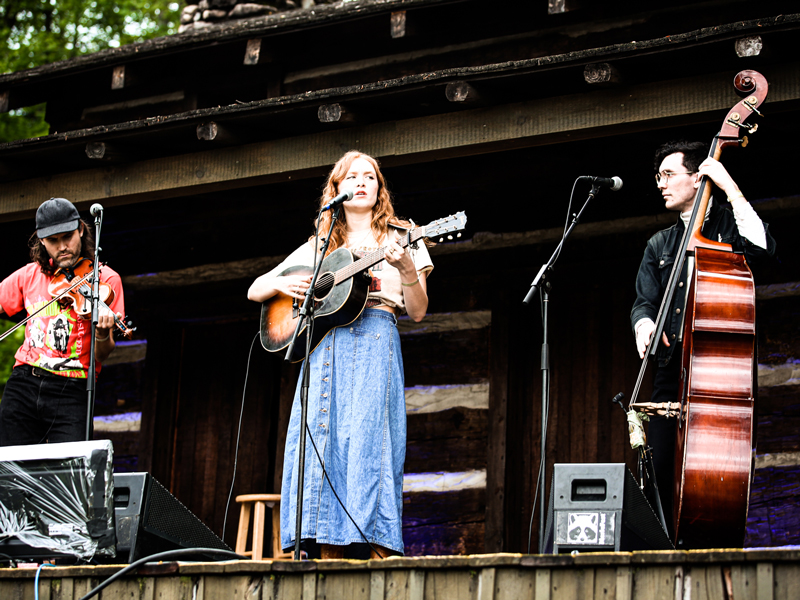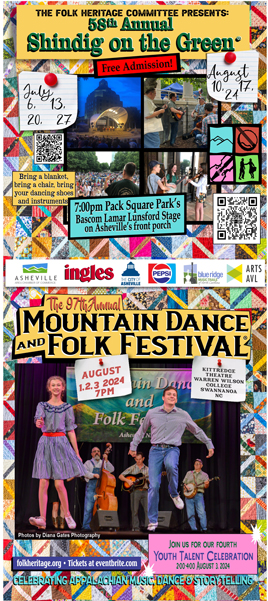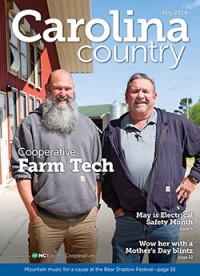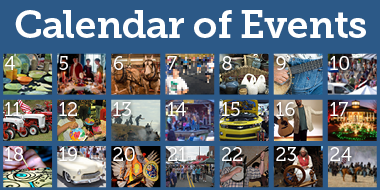Music to Come Home to
Continuing the traditions of Appalachian music
By Jessie LangFor many involved in Appalachian, bluegrass and old-time music, the community is what makes it special, often nurtured through jams and sessions. These informal gatherings provide a place to learn new tunes or songs and connect with others in a welcoming atmosphere.
Folklorist Ron Pen describes traditional music as “the music that America comes home to.”
Our state is a regional hub for traditional music, largely due to the rich musical traditions of the Appalachian Mountains and the Piedmont. The history of Appalachian music and its preservation is crucial to North Carolina’s cultural legacy, and there are many ways for people to get involved.
Roots of rhythm
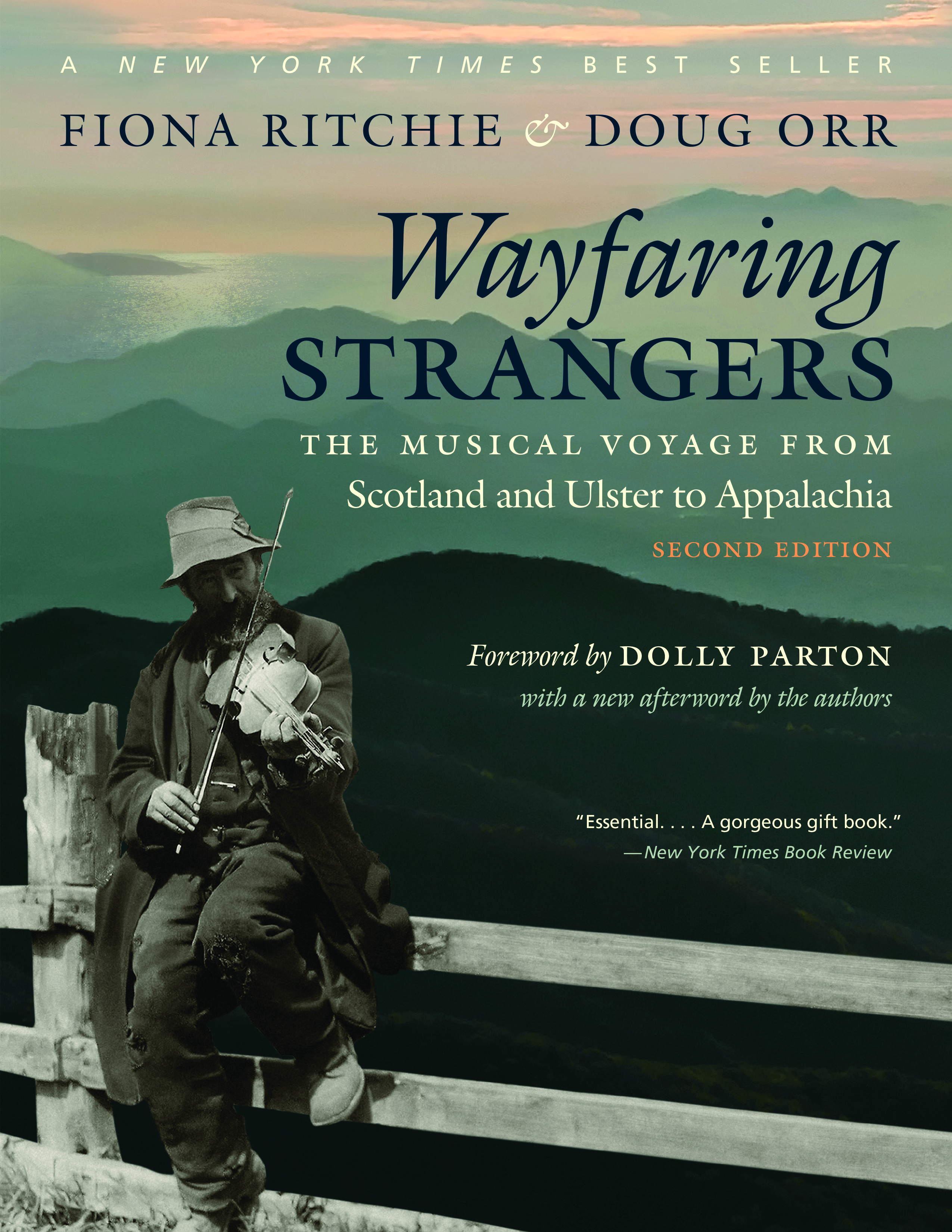
Doug Orr and Fiona Ritchie’s book, “Wayfaring Strangers: The Musical Voyage from Scotland and Ulster to Appalachia
North Carolina is the tradition bearer of much of this music, rooted in Scotland, Ireland and Northern Ireland. Doug Orr and Fiona Ritchie’s book, “Wayfaring Strangers: The Musical Voyage from Scotland and Ulster to Appalachia” (UNC Press, 2014), tells the story of the journey of immigrants from Scotland through Ulster, then to America — down the Philadelphia Wagon Road to the Southern Appalachians. More than a quarter of a million immigrants came into America in the 1700s, carrying their ballads, fiddle tunes and stories with them.
Ballads from the United Kingdom and Scots-Irish fiddle tunes mixing with African music and instruments (like the banjo), and Cherokee rhythms and melodies, eventually developed into the Celtic, old-time and bluegrass traditions we enjoy today.
Families that settled here continued passing down the musical and storytelling traditions to new generations.
“North Carolina has a major role in it, maybe more than any single state,” Doug says. Many immigrants settled in the Piedmont and western mountains of North Carolina.
Preserving tradition
The rich cultural heritage and legacy of traditional music illustrates the need to preserve one of our state’s proudest traditions. Doug has been at the forefront of these efforts by creating the Swannanoa Gathering, a folk arts workshop series hosting five weeks of themed music instruction at Warren Wilson College since 1992.
Recognizing the mountainous setting and musical history of Western North Carolina as a perfect place for a traditional music camp, his dream grew rapidly. It now attracts over 1,500 people from across the world each summer to study with incredible musicians. Their Youth Scholar program passes down the legacy by providing scholarships.
Each night, the moon’s coming up over the mountains, the fiddle tunes are in the air, the beer tent is flowing and friendships are being made.
The most important feature of the Gathering illustrates the community of traditional music. “Students leave with the spirit of the community of the music,” Doug explains. “Each night, the moon’s coming up over the mountains, the fiddle tunes are in the air, the beer tent is flowing and friendships are being made.”
Laura Boosinger, a traditional musician (banjo player, guitarist and singer) and former executive director of the Madison County Arts Council, enjoys exposing audiences to the music and its importance.
“This is an important part of our American history, and I love being able to share the music with audiences who don’t have a point of entry into the music,” she says.
This love and reverence for Appalachian music has carried Laura through her extensive career, performing worldwide with acclaimed musicians David Holt (host of the PBS Show “David Holt’s State of Music”), mountain swing fiddler Luke Smathers and virtuoso Josh Goforth, among others.
Studying Appalachian music at Warren Wilson College, she was welcomed into the rich musical traditions of the families of Haywood and Madison counties. Laura was intrigued by their stories and how “these mountain traditions stay so attached to families.”
Music has taken Laura around the world, but one of the things she’s passionate about is passing down the music through her work at the arts council and the Madison County Junior Appalachian Musicians (JAM) program.
“I think it’s my responsibility since people shared this music with me, I should also communicate it to folks and try to help kids get along in the music,” she adds.
JAM, founded by the late Helen White in Sparta in 2008, is an after-school program providing inexpensive group instruction in traditional music. It’s grown substantially, with over 50 programs currently running across North Carolina and surrounding states. The Madison County JAM program thrives, serving 50 to 60 students each year, many staying involved through high school.
“It’s more than important to continue these cultural traditions that make our area of Appalachia so unique,” explains JAM Executive Director and President Brett Morris. “To lose that would be a real tragedy.” Brett believes JAM helps children “be proud of where they’re from and get away from the negative stereotypes of Appalachia.”
In the Piedmont, the nonprofit PineCone, the Piedmont Council of Traditional Music, offers youth bluegrass camps and jams to carry on the music.
“By teaching the next generation how to play, we’re giving them the tools to continue moving it forward,” says PineCone Membership Coordinator Lynda Dawson.
Music for all
Blue Ridge Music Trails, an initiative of the North Carolina Arts Council and the Blue Ridge National Heritage Area Partnership, operates as a resource for traditional artists and visitors of the western 29 counties of North Carolina.
Their efforts to sustain and promote artistic traditions “foster an ecosystem where people can find authentic music and artists can rely on that as part of their income,” says Brandon Johnson, program manager at the Blue Ridge National Heritage Area Partnership.
One of these preservation efforts is the Mountain Dance & Folk Festival in Asheville, started by musician Bascom Lamar Lunsford in 1928, continuing today as the longest-running folk festival in America. The Trails initiative created the Fine Tuned program, pairing young musicians with mentors for professional development.
Music and Dance Director at the NC Arts Council Jamie Katz Court describes North Carolina’s abundance of creative traditions perfectly. “I hope people recognize how rich and varied the arts community is here, and how lucky we are to have programs happening in every county in the state."
Across North Carolina, many organizations, festivals and fiddler’s conventions nurture this community. The International Bluegrass Music Association’s (IBMA) World of Bluegrass Festival has been held each fall in downtown Raleigh for the past 10 years (it will hold its last festival in Raleigh in 2024) and bills itself as the largest urban bluegrass festival in the world.
“IBMA has really provided a vehicle for bluegrass to be seen by a larger audience,” says Lynda Dawson. It draws thousands to Raleigh, along with substantial revenue.
Another internationally recognized festival is Wilkesboro’s MerleFest, founded by iconic native guitarist Doc Watson in 1988. Both festivals engage youth through tailored performance and educational opportunities.
The success of Doug’s book “Wayfaring Strangers” also provides hope for the future. It’s the fastest-selling book in the history of UNC Press, and its success indicates strong interest in the music.
“Many of our great traditions in this country could easily be lost because we’re a transient culture,” Doug says. “The songs are deeply rooted in our history and persevere. It’s our responsibility to continue that tradition.”
On Stage in 2024
North Carolina is a hotspot for experiencing Appalachian, bluegrass and old-time music live and up close. Here are a few upcoming events.
MerleFest
April 25–28
Wilkes Community College, Wilkesboro
merlefest.org
Shindig on the Green
Select Saturdays in July and August
Pack Square Park, Asheville
folkheritage.org
Mountain Dance & Folk Festival
Aug. 1–3
Kittredge Theatre at Warren Wilson College, Swannanoa
folkheritage.org
Carolina Bible Camp Bluegrass Festival
Sept. 14
Mocksville
cbcbluegrass.com
World of Bluegrass Festival
Sept. 24–28
Downtown Raleigh
worldofbluegrass.org
About the Author
Jessie Lang was a Carolina Country editorial intern in 2023 and has played traditional music since the age of 9. She is currently studying publishing, public relations & music at Belmont University in Nashville, graduating this May.-
Share this story:

